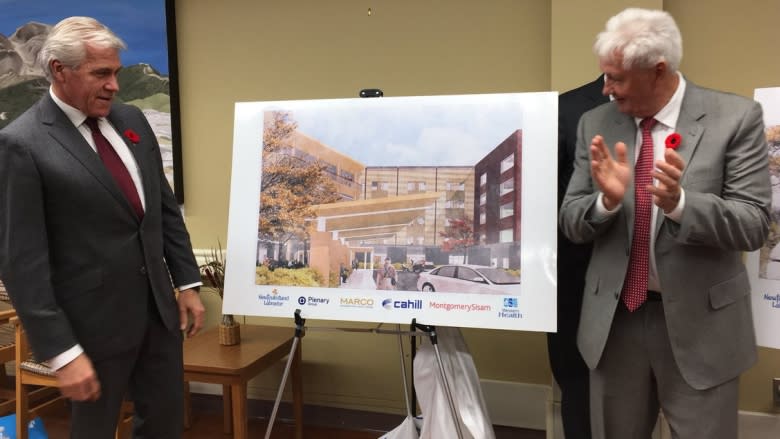Advocate warns key element missing from Corner Brook long-term care facility plan
Craig Reid was looking for one detail when the provincial government released more information about the long-term care facility that crews in Corner Brook are preparing to build.
And when he didn't see it, the accessibility advocate from Mount Pearl spoke up.
Reid wanted to know why he didn't find a requirement that the builders of the facility fully adopt universal design principles.
Universal design is about inclusion, about buildings that everyone can use whether or not they have disabilities.
"We've got to have support for universal design. Otherwise we're going to continue to make mistakes so that we have to retrofit all these buildings yet again, costing ourselves more money down the road," said Reid.
Transportation and Works Minister Steve Crocker downplayed those concerns on CBC Radio's Corner Brook Morning Show.
"The principles of universal design are included in the standards that we use," Crocker said, referring to his government's move to align its accessibility requirements with the National Building Code of Canada and the Canadian Standards Association.
"It's very important to us to make sure that, from the parking lot, to the bed … that these buildings are as accessible as possible."
Reid said it's "brilliant" that provincial regulations are about to sync up with the CSA.
But he warns that there is a significant difference between using some of the principles of universal design and fully adopting it.
Lever handles on doors and faucets
Reid said CSA standards don't go as far as fully incorporating universal design would.
Examples include wall outlets placed where people who use wheelchairs can easily reach them, or placing light switches lower on walls than has been standard.
As well, lever handles would be required on both doors and faucets, as they are easier to use than knobs.
Reid said the contract for the long-term care home in Corner Brook presented the perfect opportunity for the provincial government to exceed CSA standards.
"It's not pushing to achieve universal design, and that's where we need to be for an inclusive society."
Reid lives with serious back and hip problems.
His name is well-known in government circles, and he has acted as a watchdog when he's found evidence that the province is not following its own accessibility rules.
Most recently, Reid complained that the parking spots closest to the entrance of the West Block of Confederation Building — traditionally reserved for cabinet ministers — should have been designated blue zone instead.
His complaint prompted an accessibility inspector to issue a compliance order.
Those parking spaces have since been converted to blue zone spaces, and reserved spaces for cabinet ministers are a little further away.
Minister promises facility will be top of the line
The long-term care facility in Corner Brook is expected to cost around $120 million, and will include 120 long-term care beds.
Crocker said the idea for the new facility is to get the best value for the public dollar, "and obviously that goes right down to accessibility."
"We've had great discussions with the Department of Health and Western Health about what needs to be incorporated to make sure that this facility is top of the line, No. 1, when the doors open," said Crocker.
Reid said that fully adopting universal design during construction of a long-term care home would benefit residents, but would also accommodate the needs of any employee who lives with a disability.
Joblessness is a glaring issue for people with disabilities. One reason is that buildings that aren't accessible are an impediment to getting hired.
The new facility will be a public-private partnership, built and maintained by private contractors, and staffed by around 200 public sector employees.
A group called the Corner Brook Care Partnership will oversee the design, construction, financing and maintenance of the facility.












